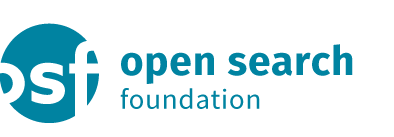“If you don’t have an alternative, you settle for what you know”
Interview with Dr. Olivier Blanchard. The humanities scholar and management consultant, on the board of the Open Search Foundation as well as the moderator of the osf Economy group.
Interview: Susanne Vieser
Almost 70 billion US dollars in the third quarter of 2022 alone: Google profits from the fact that almost 84 percent of people all over the world search with its simple-looking search engine. Above all, however, the group generates revenue because companies pay a lot either to be placed at the top of the search results or to refer to their own offers. Google leads the market with this business model; competitors like Baidu, Bing, Yandex are much smaller and offer almost the same service.
“An open web index would counteract this tendency on the search market, where only one company serves almost all users and thus determines the offer,” says Olivier Blanchard. The humanities doctor and multiple founder has been involved with search engines or the digital advertising market for years and would like to see a more diverse offering. Since 2020, he has been involved with the Open Search Foundation (OSF) and, with the economy specialist group, is questioning the economic benefits of search alternatives and an exciting market: “Search and information retrieval are almost basic democratic rights in the digital age,” says Blanchard. “This aspect has always fascinated me about it.”
Purchasing, human resources, marketing – there is hardly a corporate sector that does not search for information: are companies always satisfied with the search results?
Olivier Blanchard: Who is always satisfied? I believe that companies – wrong: the employees – are indeed usually satisfied. But that’s not so much because people are generally satisfied with search engines, but rather because we haven’t had or known of any real alternatives for two decades and perceive the standard quasi normatively. If you don’t have an alternative, you just settle for what you know.
In which areas do search engines deliver unsatisfactory results?
Blanchard: The search areas that were once weak are gradually being improved in a focused way. Take product search, for example: it used to deliver few results and is now better developed. As far as relevant standard applications are concerned, we observe that the white spots on the search map are gradually closing. Nevertheless, we need alternatives, especially for progress and new impulses – for searching and research itself, for the use and for the commercialisation of search services.
With ChatGPT, the text generator based on artificial intelligence, just such an impulse seems to be coming: Can ChatGPT change search and the market?
Blanchard: This is a concrete example of alternative access to information. The user interface is newer, more interesting. Bing and Microsoft already have a strong focus on this. But it is important to understand what information is fed into systems and how it is used by users.
What brought you to OSF as a consultant and why are you involved here?
Blanchard: I have always been interested in the topic of internet search: from my first job in the late 1990s at Lycos, which was one of the most relevant search engines at the time, to Microsoft and finally to OSF. Searching or obtaining information are almost basic democratic rights in the digital age. This aspect has always fascinated me.
Do companies use alternatives to the well-known search services?
Blanchard: To my knowledge, the companies I know rarely use alternatives.
An open web index can and should initiate new search services. How high do you estimate the revenue potential for this alternative search market?
Blanchard: There have already been several attempts to establish new search engines and these attempts continue. Perceptible and quite diverse. But we notice that they mostly operate in niches. This does not have to remain the case in the future: People and their behaviour or environment change continuously. The awareness of risky dependencies on products and services – and search is definitely a highly relevant service – is not limited to the energy sector. Users are increasingly recognising the dangers posed by the big data octopuses in internet use, and this in particular is creating opportunities for new services.
The digital economy has a tendency to form oligopolies or even monopolies – does an open web index protect against this development?
Blanchard: Unfortunately, that’s true. Of course, an open web index would counteract the fact that on the search market, only one company serves almost all users and thus determines the offer. This situation is one of the most important motivations for OSF to be active here.
What will the search market look like in five years?
Blanchard: Hopefully much more diverse in terms of offers and qualitatively genuine alternatives. Whether we will actually have arrived at a more diverse offer in 5 years is questionable. We need a lot more staying power. But we should help now to create alternatives for the future. The later we start, the more challenging it will be to catch up.
And where will you or do you want to be active as a consultant?
Blanchard: Where change is taking place and where there is a fire and I can actually help to shape the necessary change.
Dr. Olivier Blanchard
Humanities scholar, Management Consultant, Founder DigiDoo Consulting & Digitalbeirat.io, board member, moderator of the osf working group Economy


